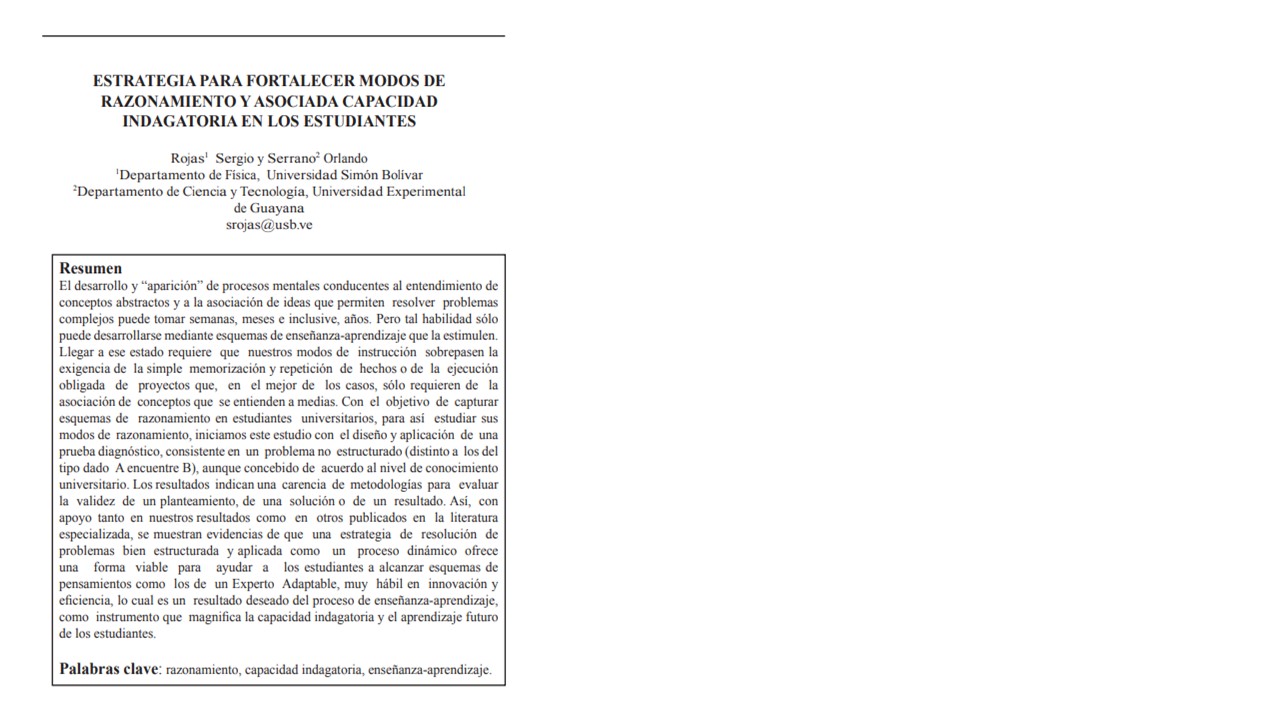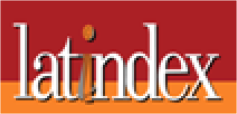Strategy to strengthen modes ofreasoning and associated capacity indagatory in students
Keywords:
Reasoning, inquiry capacity, teaching-learningAbstract
The development and "emergence" of mental processes leading to the understanding of abstract concepts and the association of ideas that allow solving complex problems can take weeks, months and even years. But such ability can only be developed through teaching-learning schemes that stimulate it. Reaching this state requires that our modes of instruction surpass the requirement of simple memorization and repetition of facts or the forced execution of projects that, in the best of cases, only require the association of concepts that are half understood.With the aim of capturing reasoning schemes in university students, in order to study their modes of reasoning, we started this study with the design and application of a diagnostic test, consisting of an unstructured problem (different from those of the given type A find B) , although conceived according to the level of university knowledge.
Downloads
References
Bunge, M. (2004). How does it work?: The search for explanatory mechanisms. Philosophy of the Social Sciences. 34 (2): 182 – 210.
Bunge, M. (2000). Systemism: the alternative to individualism and holism. Journal of Socio-Economics. 29 (2): 147–157.
Conway, M., Cohen, G., y Stanhope, N. (1991). On the very long-term retention of knowledge acquired through formal education: Twelve years of cognitive psychology. Journal of Experimental Psychology: General. 120 (4): 395–409.
Crouch, C., Hilborn, R., Kane, S., McKay, T., y Reeves, M. (2010). The back page: Physics for future physicians and life scientists: a moment of opportunity. APS News. 19 (3): 8.
Eckhardt, B. y Ott, E. (2006). Crowd synchrony on the london millennium bridge. Chaos: An Interdisciplinary Journal of Nonlinear Science. 16 (4): 041104–041104.
Hacker, D., Dunlosky, J., y Graesser, A. (1998). Metacognition in educational theory and practice. Hillsdale: Lawrence Erlbaum Associates Publishers.
Hamed, K. (2008). Do you prefer to have the text or a sheet with your physics exams?
The Physics Teacher. 46 (5): 290–293.
Kopp, S. (2010). The back page: Enlarging physics programs at colleges and universities. APS News. 19 (8): 8.
Larkin, J., McDermott, J., Simon, D., y Simon, H. (1980). Expert and novice performance in solving physics problems. Science. 208 (4450): 1335– 1342.
Lin, X., Schwartz, D., y Hatano, G. (2005). Toward teachersádaptive metacognition. Educational Psychologist. 40 (4): 245– 255.
Rojas, S. (2012). Enhancing the process of teaching and learning physics via dynamic problem solving strategies: a proposal. Revista Mexicana de Física E. 58 (1): 7–17.
Rojas, S. (2010a). On the teaching and learning of physics problem solving. Revista Mexicana de Física E. 56 (1): 22–28.
Rojas, S. (2010b). Investigaciones en dinámica social, flujo de fluido en medios porosos y en enseñanza-aprendizaje de física, [en línea]. Trabajo de Ascenso para optar a la categoría de Profesor Titular de la Universidad Simón Bolívar. Recuperado el 20 de enero de 2012, de http://bitly.com/S0zY9E
Rojas, S. (2008). On the need to enhance physical insight via mathematical reasoning. Revista Mexicana de Física E. 54 (1): 75–80.
Veenman, M. (2012). Metacognition in science education: Definitions, constituents, and their intricate relation with cognition. Metacognition in Science Education. 40: 21–36.

Downloads
Published
How to Cite
Issue
Section
License

This work is licensed under a Creative Commons Attribution-NoDerivatives 4.0 International License.







